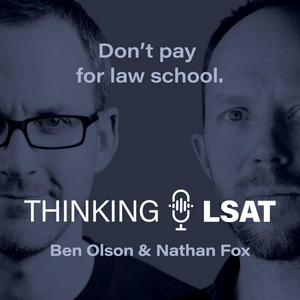Reagan writes in after following Ben and Nathan’s advice from a previous episode to retake the LSAT and reapply. She shares her success story, including multiple full-ride offers and additional stipends.
Also in this episode:
- How an older applicant can best prepare.
- A student gets waitlisted…for the waitlist.
- The guys react to Nathan’s nephew’s argumentative essay.
Study with our Free Plan
Download our iOS app
Watch Episode 546 on YouTube
Check out all of our “What’s the Deal With” segments
Get caught up with our Word of the Week library
0:00 Older Applicant
8:43 Waitlist for a Waitlist
18:19 Retake & Reapply Results
31:42 Test D Question — Room for Dessert
48:42 Tips from Departing Demons
54:02 Accommodation Solicitation
57:04 Reaching Out for a Grade Change
1:07:35 Argumentative Essay on Meat Pizza
1:18:53 Word of the Week — paucity


